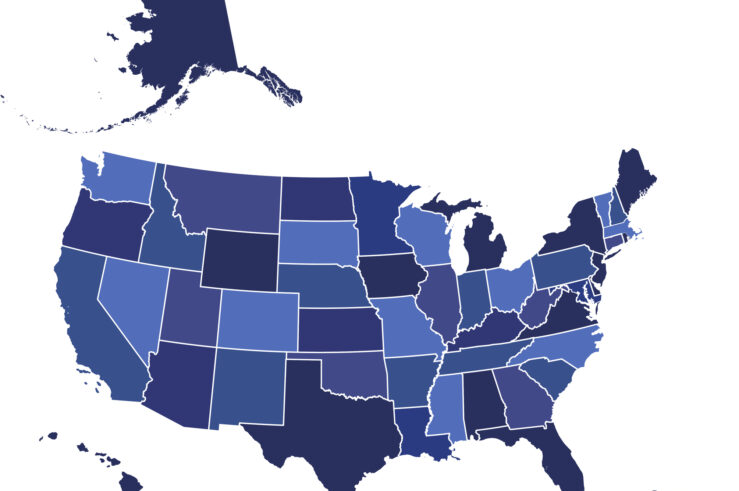Showing results for: “price gouging”
Mandatory Interoperability Is Not a ‘Super Tool’ for Platform Competition
On both sides of the Atlantic, 2021 has seen legislative and regulatory proposals to mandate that various digital services be made interoperable with others. Several bills to do so have been proposed in Congress; the EU’s proposed Digital Markets Act would mandate interoperability in certain contexts for “gatekeeper” platforms; and the UK’s competition regulator will ... Mandatory Interoperability Is Not a ‘Super Tool’ for Platform Competition
The FTC’s Privacy Report Fails to Justify Asymmetric Regulation of ISPs
Others already have noted that the Federal Trade Commission’s (FTC) recently released 6(b) report on the privacy practices of Internet service providers (ISPs) fails to comprehend that widespread adoption of privacy-enabling technology—in particular, Hypertext Transfer Protocol Secure (HTTPS) and DNS over HTTPS (DoH), but also the use of virtual private networks (VPNs)—largely precludes ISPs from ... The FTC’s Privacy Report Fails to Justify Asymmetric Regulation of ISPs
Political Philosophy, Competition, and Competition Law: The Road to and from Neoliberalism, Part 1
The interplay among political philosophy, competition, and competition law remains, with some notable exceptions, understudied in the literature. Indeed, while examinations of the intersection between economics and competition law have taught us much, relatively little has been said about the value frameworks within which different visions of competition and competition law operate. As Ronald Coase ... Political Philosophy, Competition, and Competition Law: The Road to and from Neoliberalism, Part 1
Case closed: Google wins (for now)
The European Commission and its supporters were quick to claim victory following last week’s long-awaited General Court of the European Union ruling in the Google Shopping case. It’s hard to fault them. The judgment is ostensibly an unmitigated win for the Commission, with the court upholding nearly every aspect of its decision. However, the broader ... Case closed: Google wins (for now)
What is the Appropriate Role for State Antitrust Enforcement?
In the U.S. system of dual federal and state sovereigns, a normative analysis reveals principles that could guide state antitrust-enforcement priorities, to promote complementarity in federal and state antitrust policy, and thereby advance consumer welfare. Discussion Positive analysis reveals that state antitrust enforcement is a firmly entrenched feature of American antitrust policy. The U.S. Supreme ... What is the Appropriate Role for State Antitrust Enforcement?
Judge Ginsburg: On the Proposed Digital Markets Unit and the UK’s Competition and Markets Authority
Thank you, Victoria, for the invitation to respond to Mr. Coscelli and his proposal for a legislatively founded Digital Markets Unit. Mr. Coscelli is one of the most talented, successful, and creative heads a competition agency has ever had. In the case of the DMU [ed., Digital Markets Unit], however, I think he has let ... Judge Ginsburg: On the Proposed Digital Markets Unit and the UK’s Competition and Markets Authority
The Contestable Platform Paradox
Why do digital industries routinely lead to one company having a very large share of the market (at least if one defines markets narrowly)? To anyone familiar with competition policy discussions, the answer might seem obvious: network effects, scale-related economies, and other barriers to entry lead to winner-take-all dynamics in platform industries. Accordingly, it is ... The Contestable Platform Paradox
5 Thoughts on the Senate’s Proposed Platform Self-Preferencing Ban
A bipartisan group of senators unveiled legislation today that would dramatically curtail the ability of online platforms to “self-preference” their own services—for example, when Apple pre-installs its own Weather or Podcasts apps on the iPhone, giving it an advantage that independent apps don’t have. The measure accompanies a House bill that included similar provisions, with ... 5 Thoughts on the Senate’s Proposed Platform Self-Preferencing Ban
Why There Needs to Be More, not Less, Consolidation in Video Streaming
Slow and inadequate oversight risks the streaming market going the same route as cable—where consumers have little power, few options, and where consolidation and concentration reign supreme. A number of threats to competition are clear, as discussed in this section, including: (1) market power issues surrounding content and (2) the role of platforms in “gatekeeping” ... Why There Needs to Be More, not Less, Consolidation in Video Streaming
Is There Any Market Power in Online Display Advertising?
A lawsuit filed by the State of Texas and nine other states in December 2020 alleges, among other things, that Google has engaged in anticompetitive conduct related to its online display-advertising business. Broadly, the Texas complaint (previously discussed in this TOTM symposium) alleges that Google possesses market power in ad-buying tools and in search, illustrated ... Is There Any Market Power in Online Display Advertising?
Using the Hypothetical Monopolist Test to Define the Relevant Market for Ad Tech
Policymakers’ recent focus on how Big Tech should be treated under antitrust law has been accompanied by claims that companies like Facebook and Google hold dominant positions in various “markets.” Notwithstanding the tendency to conflate whether a firm is large with whether it hold a dominant position, we must first answer the question most of ... Using the Hypothetical Monopolist Test to Define the Relevant Market for Ad Tech
Online Display Advertising: What’s the relevant market?
Digital advertising is the economic backbone of the Internet. It allows websites and apps to monetize their userbase without having to charge them fees, while the emergence of targeted ads allows this to be accomplished affordably and with less wasted time wasted. This advertising is facilitated by intermediaries using the “adtech stack,” through which advertisers ... Online Display Advertising: What’s the relevant market?











